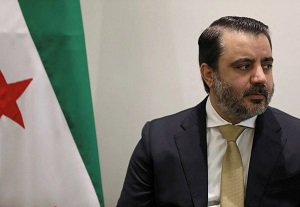Cabinet approves $845 million US grant, approves wide-ranging economic regulatory measures
The Jordan Times
AMMAN — The Cabinet on Sunday approved the annual $845 million US grant agreement, to be transferred as direct support to the Treasury for the year 2025.
The decision came during a session chaired by Prime Minister Jafar Hassan, during which the minister of planning and international cooperation was authorised to sign the agreement on behalf of the government.
The grant reflects the continued strategic partnership between Jordan and the US and Jordan’s strong standing under the leadership of His Majesty King Abdullah, according to a Prime Ministry statement.
The Cabinet also endorsed amendments to the customs-tariff schedule aimed at supporting domestic industries and ensuring fair competition with imported goods.
Tariffs on imports with local alternatives were adjusted for protective purposes, while food items without local substitutes, clothing and children’s supplies were exempted, the statement read.
Revised customs duties on affected goods will range between 5 and 10 per cent, down from pre-2023 levels of 20–30 per cent. The statement noted that the decision was built on recent government actions to strengthen industrial competitiveness, including tax exemptions on industrial inputs and updated electricity-grid connection rules to support industrial expansion.
The Cabinet approved 719 tax-settlement cases between taxpayers and the Income and Sales Tax Department.
Civil aviation
The Cabinet also approved the validating reasons for the amended Civil Aviation Fees Regulation for 2025, referring it to the Legislation and Opinion Bureau for review.
The amendments aim to address operational and regulatory challenges by establishing a more transparent, fair and sustainable fee system that supports infrastructure development, stimulates sector growth and unifies fees across airports, the statement read.
Key elements include enhancing sustainability and operational efficiency, keeping pace with rapid technological changes in air-navigation systemsand securing additional funding for infrastructure and capacity-building projects, particularly at Amman Civil Airport and King Hussein International Airport in Aqaba.
The bylaw also expands regulatory coverage to include drones, gliders and recreational aviation, boosting Jordan’s competitive position in the regional aviation sector.
The new amendments are expected to increase the civil aviation sector’s efficiency, flexibility, and ability to attract investment and international partnerships, positively benefiting the national economy and enhancing Jordan’s standing as a regional aviation hub, according to the statement.
Minerals
The Cabinet expanded the national list of rare-earth elements and strategic minerals to include helium, citing its high economic value. It also approved a memorandum of understanding between the Ministry of Energy and Mineral Resources and Hotspur Helium to explore helium in the Dead Sea region, the first time a company has been invited to explore this resource in the Kingdom, the statement read.
The Cabinet also approved a draft law ratifying the implementation agreement with Wadi Araba Minerals Company for the assessment, development and exploitation of gold and associated minerals in the Abu Khushaiba area. The agreement grants the company licences to explore, develop, operate and market the minerals throughout 2025, the statement read.
Education
The Cabinet also endorsed the draft 2025 teachers’ clubs bylaw, which will expand social facilities for educators. Recent government measures include granting emergency financial advances, doubling the Royal scholarship quota for teachers’ children, allocating part of student-aid funds to educators, doubling Hajj missions for the Ministry of Education and refurbishing or establishing teachers’ clubs in several governorates.
The Cabinet approved the second National Strategy for Media and Information Literacy (2026–2029), emphasising national efforts to counter fake news, misinformation, rumours and hate speech. The strategy was developed under the Ministry of Government Communications, in cooperation with the Jordan Media Institute and with support from UNESCO, the statement said.
The Councel of Ministers also endorsed a memorandum of understanding between Jordan’s National Cybersecurity Center and Qatar’s National Cybersecurity Agency to enhance cooperation in cybersecurity.
The Cabinet also approved a memorandum of understanding on agricultural cooperation between Jordan and Yemen.
Latest News
-
 Woman injured after rocket explosion hits Damascus’ Mazzeh neighborhood
Woman injured after rocket explosion hits Damascus’ Mazzeh neighborhood
-
 King, Singapore president discuss enhancing cooperation, regional developments
King, Singapore president discuss enhancing cooperation, regional developments
-
 US approves first military sale to Taiwan since Trump's return to office
US approves first military sale to Taiwan since Trump's return to office
-
 Syria Reopens Embassy in London after More than a Decade
Syria Reopens Embassy in London after More than a Decade
-
 Weather alert: Unstable conditions coming to Jordan
Weather alert: Unstable conditions coming to Jordan